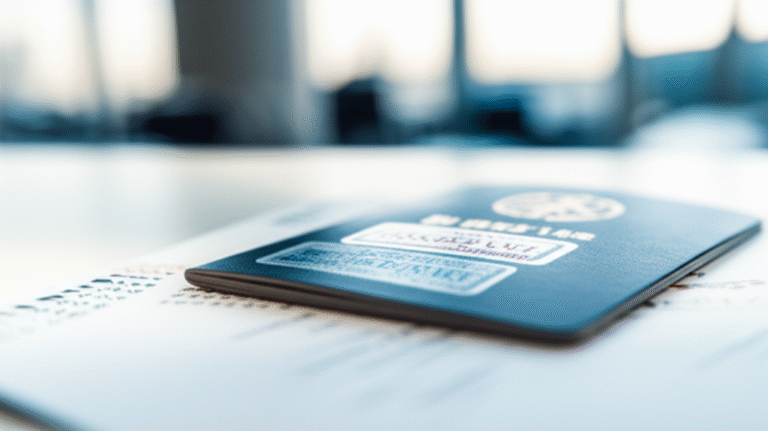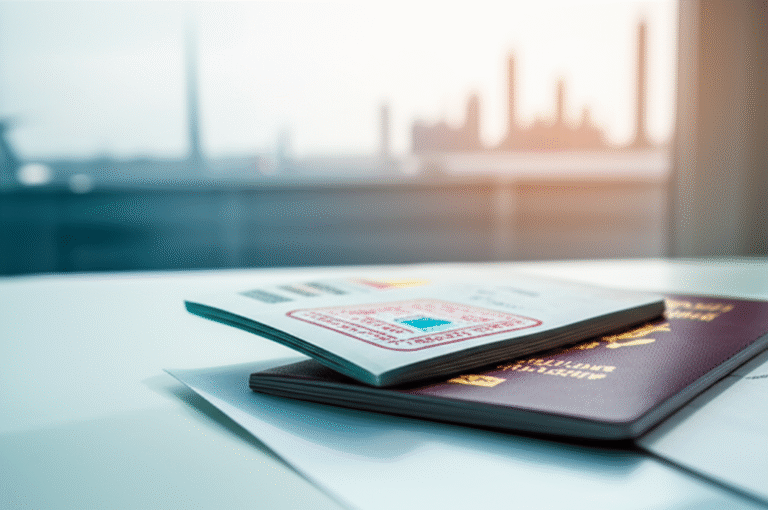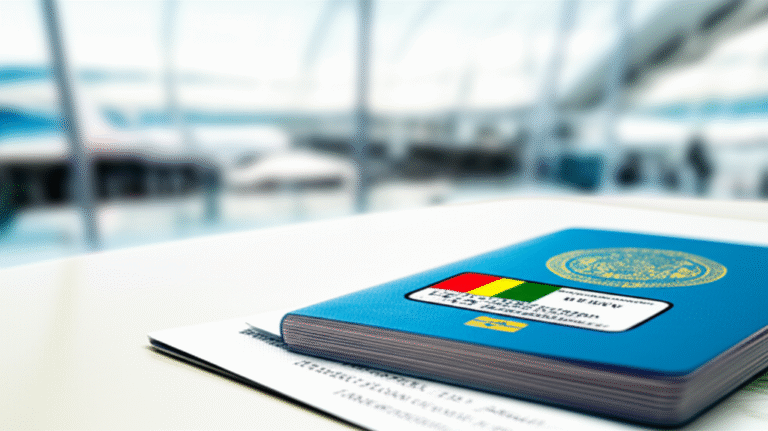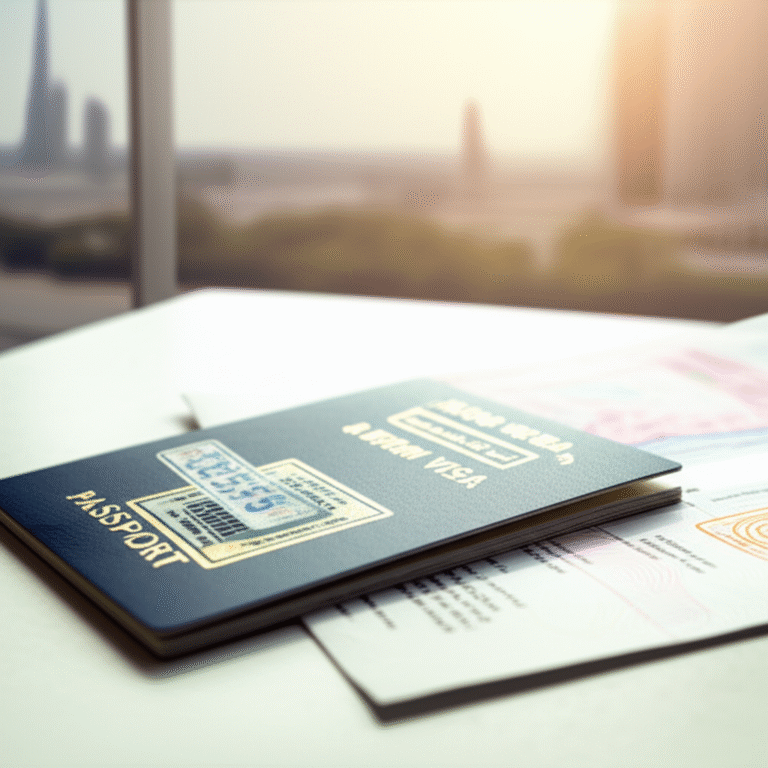How to Apply for Dubai Work Visa: Your Guide
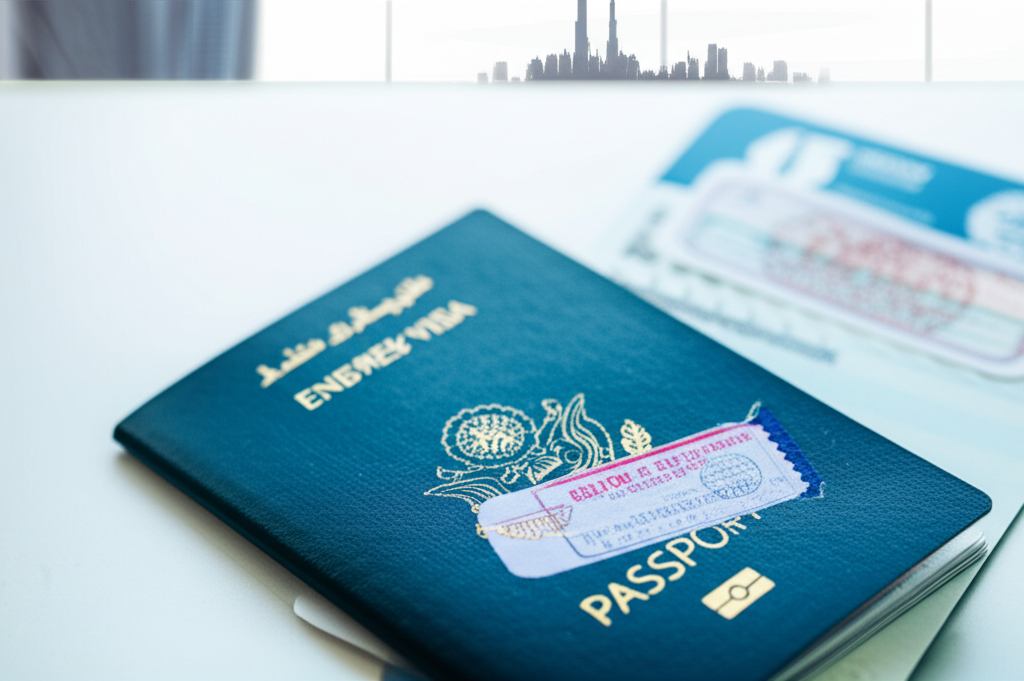
Applying for a Dubai work visa is a streamlined process designed to welcome skilled professionals. This comprehensive guide explains everything you need to know.
Key Takeaways
- Secure a job offer from a Dubai-based employer.
- Your employer initiates the visa application process.
- Gather essential documents like a passport and photos.
- Undergo a medical examination in Dubai.
- Receive your Emirates ID and residence visa stamping.
- Understand visa requirements for different job roles.
Dreaming of a career in the vibrant city of Dubai? You’re not alone. Millions are drawn to Dubai’s dynamic economy and global opportunities. Navigating the process of obtaining a work visa can seem daunting, but it’s an essential step. This guide breaks down how to apply for a Dubai work visa, making the journey clear and manageable. We’ll walk you through each stage, from securing a job offer to the final visa stamping, ensuring you have all the information you need to start your professional life in this remarkable emirate.
Understanding the Dubai Work Visa Process
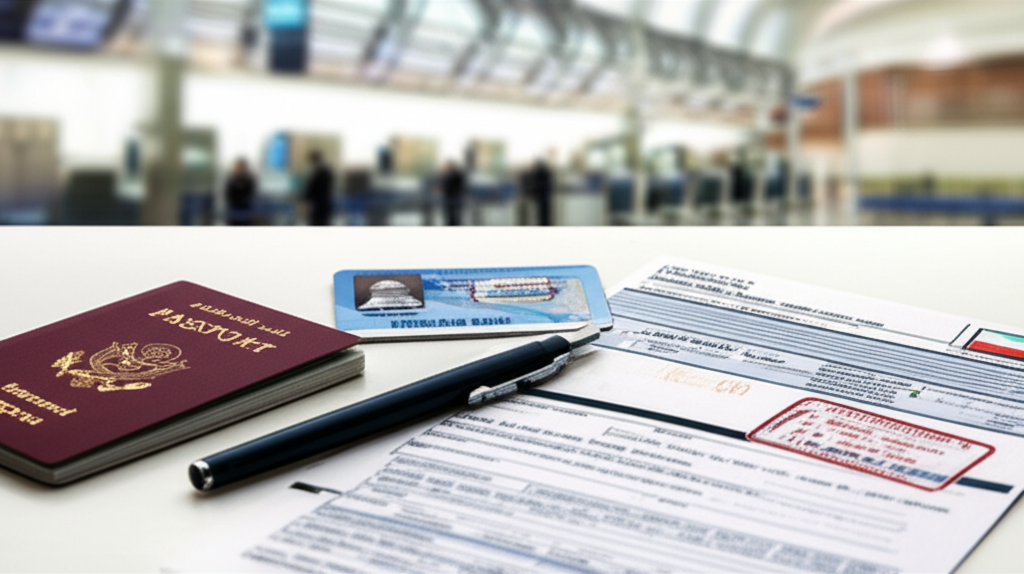
Dubai, a global hub for business and innovation, attracts talent from around the world. The United Arab Emirates (UAE) government has established a clear framework for issuing work permits and residence visas to ensure a smooth entry for expatriate workers. The Dubai work visa, often referred to as a labour card or employment visa, is your official authorisation to live and work legally in the emirate. It’s important to understand that the process is typically initiated by your prospective employer, who acts as your sponsor.
This sponsorship is a cornerstone of the UAE’s immigration system. Your employer will handle the initial application for an entry permit, which allows you to come to Dubai to begin your employment. Once you are in Dubai, you will undergo further procedures, including a medical fitness test and the application for an Emirates ID, which is a mandatory identity card for all UAE residents. The final step involves stamping the residence visa into your passport.
The Dubai Police and the Ministry of Human Resources and Emiratisation (MOHRE) play crucial roles in regulating the labour market and ensuring compliance with the UAE’s labour laws. Their efforts contribute to a safe and orderly working environment for everyone. Understanding these foundational aspects will help you navigate the application process with confidence.
Step 1: Secure a Job Offer
The absolute first and most critical step in applying for a Dubai work visa is to secure a job offer from a company legally registered and operating in Dubai. Without a confirmed employment offer, you cannot begin the visa application process. Your potential employer will act as your sponsor, meaning they will take responsibility for your visa application and legal status in the UAE.
When looking for opportunities, focus on reputable companies that are aware of and compliant with UAE labour laws. You can find job openings through various channels:
- Online Job Portals: Websites like LinkedIn, Bayt.com, Naukri Gulf, and GulfTalent are excellent resources. Filter your searches for roles based in Dubai.
- Company Career Pages: Many large corporations and government entities, including those associated with Dubai Police initiatives or smart city projects, have dedicated career sections on their websites.
- Recruitment Agencies: Specialized recruitment agencies can help match your skills with available positions. Ensure they are licensed and reputable.
- Networking: Attend industry events and connect with professionals working in Dubai.
Once you receive a job offer, ensure it includes details about your role, salary, contract duration, and importantly, confirmation that the employer will sponsor your work visa. This offer letter forms the basis of your visa application.
Step 2: Employer Initiates the Application for an Entry Permit
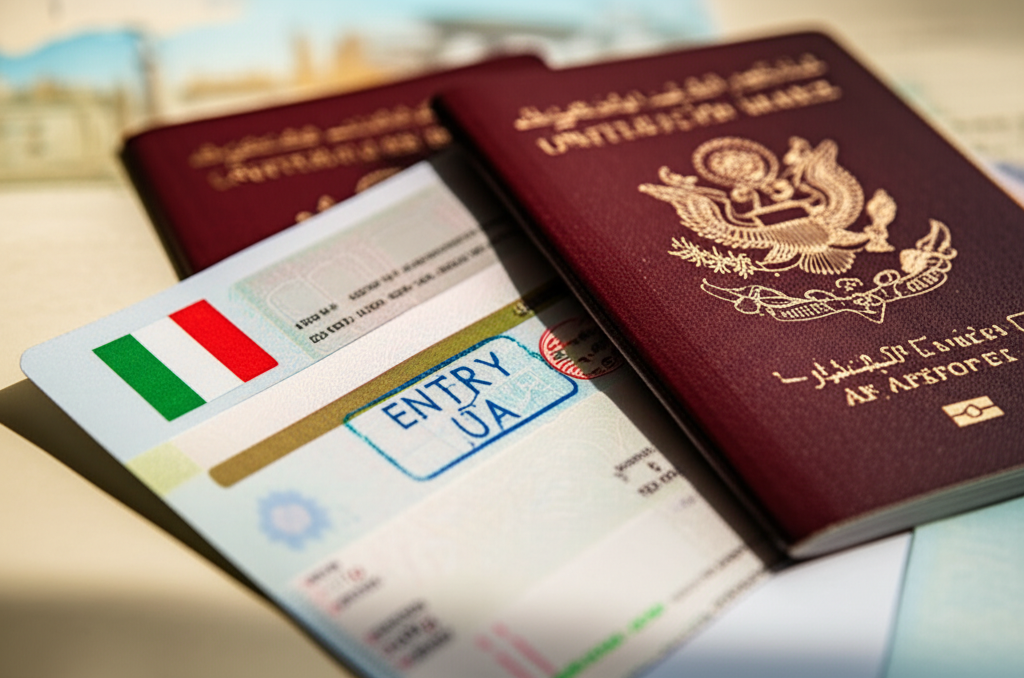
After you’ve accepted the job offer, your employer will begin the visa application process on your behalf. This usually starts with applying for a work entry permit from the Ministry of Human Resources and Emiratisation (MOHRE) or the relevant free zone authority, depending on where the company is registered.
Your employer will need to submit several documents to the authorities. These typically include:
- A copy of your passport (valid for at least six months).
- Your passport-sized photographs (meeting specific UAE requirements).
- The attested educational certificates relevant to your job role.
- Information about the company, including its trade license.
- Details about the proposed employment contract.
The entry permit, also known as a visa permit or work permit, is an approval from the immigration authorities that allows you to enter the UAE for the purpose of taking up employment. It is typically valid for 30 to 60 days, during which you must enter the country and complete the remaining visa procedures.
For certain professions, especially those requiring specific qualifications or involving sensitive work (like those connected to public safety or advanced technology initiatives), additional approvals or certifications might be needed. Your employer will guide you through these specific requirements.
Step 3: Travel to Dubai and Medical Examination
Once your entry permit is approved, you can travel to Dubai. Upon arrival, you will typically be issued an entry stamp in your passport allowing you to stay for the duration the entry permit is valid. It’s crucial to enter the UAE within this validity period.
The next major step is undergoing a mandatory medical fitness test at an approved government health centre or hospital. This examination is a standard requirement for all individuals applying for a residence visa in Dubai. The purpose is to screen for communicable diseases that could pose a public health risk.
The medical test usually includes:
- Blood tests.
- A chest X-ray.
- Sometimes, other tests depending on your visa category or pre-existing conditions.
You will need to bring your passport, entry permit copy, and a few passport-sized photographs to the medical centre. Your employer will usually arrange the appointment for you. If you are found medically fit, you will receive a positive result, which is necessary to proceed with your residence visa application. If any issues are flagged, your application might be deferred or require further investigation. It is essential to be truthful about your health history.
Step 4: Apply for Emirates ID
While you are in Dubai and have cleared your medical examination, the next crucial step is applying for an Emirates ID card. The Emirates ID is a mandatory identification document for all UAE residents, including those on a work visa. It serves multiple purposes, from opening bank accounts and accessing government services to, in some cases, acting as a travel document within the GCC.
The application for the Emirates ID is usually managed by your employer through the Federal Authority for Identity, Citizenship, Customs & Port Security (ICP). You will need to visit an ICP customer happiness centre or an authorized typing centre to submit your application.
The required documents for the Emirates ID application typically include:
- Your original passport with the entry permit.
- A copy of your entry permit.
- Recent passport-sized photographs meeting ICP specifications (white background).
- Proof of your employment and sponsorship (usually provided by your employer).
- The completed application form.
During the ICP visit, your biometrics (fingerprints and facial scan) will be taken. This is a standard security procedure. Your Emirates ID card will be processed and delivered to you within a few days to a couple of weeks after your residence visa is stamped.
Step 5: Visa Stamping and Finalisation
The final step in the Dubai work visa application process is the stamping of your residence visa into your passport. This officially legalises your stay and employment in Dubai. Your employer will facilitate this process, usually by submitting your passport, the results of your medical test, and your Emirates ID application details to the relevant immigration authorities (General Directorate of Residency and Foreigners Affairs – GDRFA).
The visa stamping process confirms your residence status for a specific duration, typically one to three years, depending on your employment contract and employer’s license. Once your visa is stamped, you are officially a resident of Dubai and can begin your professional journey without any legal concerns.
Upon receiving your stamped passport and your Emirates ID, you might also receive a separate labour card (though the Emirates ID is increasingly replacing its function for many purposes). Your employer will guide you on any final administrative steps, such as registering with certain government entities or setting up your employment benefits.
Types of Dubai Work Visas
Dubai offers various types of work visas tailored to different circumstances and professions. Understanding these can help you identify the most suitable category for your situation.
Standard Employment Visa
This is the most common type of work visa, issued to expatriates sponsored by a company to work in the mainland UAE. It requires an entry permit, medical test, Emirates ID, and visa stamping. The duration is usually 1-3 years.
Free Zone Visa
Companies registered in Dubai’s numerous free zones (e.g., Dubai Media City, Dubai Internet City, Jebel Ali Free Zone) issue their own visas. These often have slightly different procedures and may offer certain benefits, such as 100% foreign ownership for businesses. Your employer, if based in a free zone, will manage this application.
Green Visa
Introduced as part of the UAE’s Golden Visa scheme reforms, the Green Visa is for skilled professionals, freelancers, and entrepreneurs. It offers a longer residence permit of five years and allows individuals to sponsor themselves, rather than relying on an employer’s sponsorship. Requirements include a minimum salary and qualifications.
Golden Visa
This is a long-term residence scheme for investors, entrepreneurs, scientists, outstanding students, and professionals across various fields. It allows recipients to live, work, and study in the UAE without the need for a national sponsor. It’s typically granted for 5 or 10 years and is renewable. While not strictly a “work visa” in the traditional sense, it enables long-term residency and professional activity.
Remote Work Visa
For individuals who can work remotely for companies located outside the UAE. This visa allows you to live and work from Dubai without being employed by a local entity. You’ll need to demonstrate a stable income and valid health insurance.
Required Documents Checklist
Having all your documents in order can significantly speed up the application process. While your employer will guide you, it’s helpful to have your own checklist:
- Passport: Original passport valid for at least six months, with at least two blank pages.
- Visa Application Form: Completed accurately, usually provided by your employer or the designated typing centre.
- Passport-Sized Photographs: Recent photos (usually 4-6) meeting UAE government specifications (white background, specific dimensions).
- Entry Permit: A copy of the approved work entry permit issued by MOHRE or the relevant free zone authority.
- Attested Educational Certificates: Relevant degrees or diplomas, attested by the relevant authorities in your home country and the UAE Embassy or Consulate. (Some professions require specific attestations).
- Medical Examination Results: Proof of passing the mandatory medical fitness test in Dubai.
- Emirates ID Application: Proof of your Emirates ID application submission.
- Labour Contract: A copy of your signed employment contract.
- Company Documents: Your employer will provide their trade license and other corporate documents.
It’s always best to verify the exact document requirements with your employer, as specifications can vary based on your nationality, profession, and the type of visa.
Pro Tips: Navigating the Dubai Work Visa Process
Pro Tip: Always keep digital and physical copies of all your important documents, including your passport, visa, and employment contract. This ensures you have easy access in case of loss or for future reference.
Visa Fees and Costs
The costs associated with a Dubai work visa are generally borne by the employer as per UAE Labour Law. However, there might be certain costs employees need to cover, especially for initial travel or specific document attestations.
The main fees involved in the visa process include:
- Entry Permit fees.
- Medical examination fees.
- Emirates ID application fees.
- Visa stamping fees.
- Application processing fees charged by typing centres or PRO services.
While the employer shoulders the primary responsibility for these costs, it’s wise to clarify this in your employment contract. Some employers may request reimbursement for specific items, though this is less common for the core visa application processes. The overall cost can range from approximately AED 3,000 to AED 7,000 or more, depending on the visa type and any special requirements.
It’s also worth noting that fines can be incurred for overstaying your visa or for non-compliance with immigration rules. Adhering to the timelines and regulations is crucial.
Key Government Entities Involved
Several government bodies are instrumental in the Dubai work visa process. Understanding their roles can provide clarity:
| Entity | Role in Work Visa Process | Website/Contact |
|---|---|---|
| Ministry of Human Resources and Emiratisation (MOHRE) | Regulates the labour market, issues work permits for mainland companies, and oversees employment contracts. | www.mohre.gov.ae |
| Federal Authority for Identity, Citizenship, Customs & Port Security (ICP) | Manages the issuance of Emirates ID cards and the entry/residence visa stamping process. Formerly known as the GDRFA (General Directorate of Residency and Foreigners Affairs) for Dubai specific services. | icp.gov.ae |
| Dubai Health Authority (DHA) | Oversees the medical fitness centres and approves the results of medical examinations required for visas. | www.dha.gov.ae |
| Free Zone Authorities (e.g., DMCC, JAFZA) | Regulate companies within their respective free zones and manage the issuance of entry permits and residence visas for employees of companies registered in those zones. | Varies by free zone (e.g., dmcc.ae) |
These entities work in coordination to ensure a robust and efficient immigration system, reflecting Dubai’s commitment to order and transparency, much like the operational excellence seen in Dubai Police services.
Frequently Asked Questions (FAQ)
Q1: Can I apply for a Dubai work visa myself?
Generally, no. The work visa application process must be initiated by your prospective employer in Dubai, who acts as your sponsor. You cannot apply independently unless you are qualifying for specific visas like the Green Visa or Remote Work Visa, where self-sponsorship is permitted.
Q2: How long does the Dubai work visa process typically take?
The entire process, from securing a job offer to having your visa stamped, can take anywhere from 3 to 8 weeks, depending on the efficiency of the employer, the completeness of your documents, and the processing times of the government authorities. The entry permit is usually faster, but the subsequent steps can take time.
Q3: What happens if my medical examination result is ‘unfit’?
If your medical examination reveals a communicable disease, you will likely be declared medically unfit for residency. Depending on the condition, you may be required to leave the UAE or undergo further treatment and re-evaluation. Your employer will be informed of the result and will guide you on the next steps, which might include repatriation.
Q4: Can my family accompany me to Dubai on my work visa?
Yes, once you have your residence visa stamped, you can sponsor your immediate family members (spouse and children) to join you in Dubai. You will need to meet specific salary requirements and provide proof of your relationship through attested marriage and birth certificates. Your employer can assist with this process.
Q5: What is the difference between an entry permit and a residence visa?
An entry permit allows you to enter the UAE for a specific purpose (like employment) and is valid for a short period (usually 30-60 days). A residence visa is your official long-term legal status in the UAE, allowing you to live and work for a longer duration (1-3 years, renewable) and is typically stamped into your passport after you arrive in Dubai and complete the necessary procedures.
Q6: Do I need to attest my educational certificates for a work visa?
Yes, for most professional roles, your educational certificates must be attested. This involves getting them verified by your home country’s Ministry of Foreign Affairs and then by the UAE Embassy or Consulate in your home country. For certain jobs, further attestation by MOHRE in the UAE might be required. Your employer will specify the exact attestation requirements.
Conclusion
Successfully navigating the process of how to apply for a Dubai work visa is a significant step towards embarking on a fulfilling career in this dynamic global city. While it involves several stages, from securing a job offer and obtaining an entry permit to undergoing medical checks and receiving your Emirates ID and visa stamp, the system is designed for clarity and efficiency. Your employer plays a vital role as your sponsor, guiding you through each requirement and submitting necessary applications. By understanding the roles of key entities like MOHRE and ICP, preparing all your documents meticulously, and staying informed about visa types and fees, you can ensure a smooth transition.
Dubai continues to welcome talent from across the globe, fostering an environment of innovation and opportunity. With this guide, you are well-equipped to understand the essential steps involved, making your journey to working legally and confidently in Dubai a predictable and achievable one. Embrace the opportunity, and prepare for an enriching experience in one of the world’s most exciting cities.

